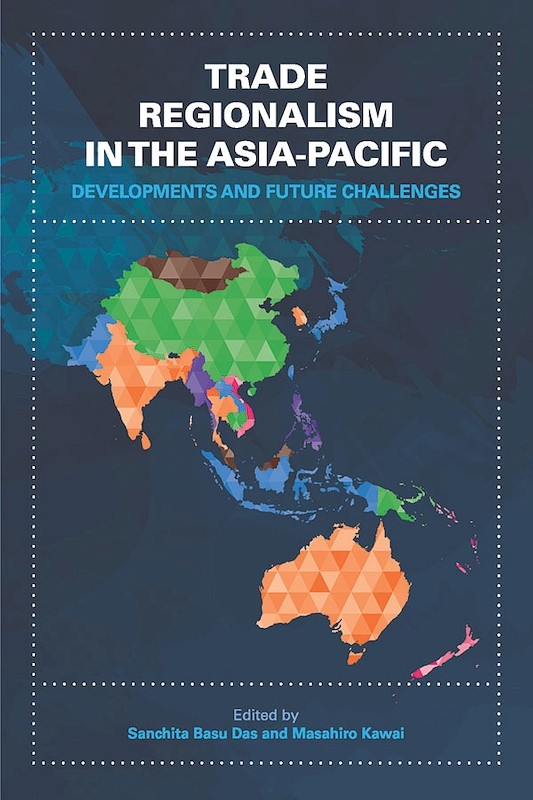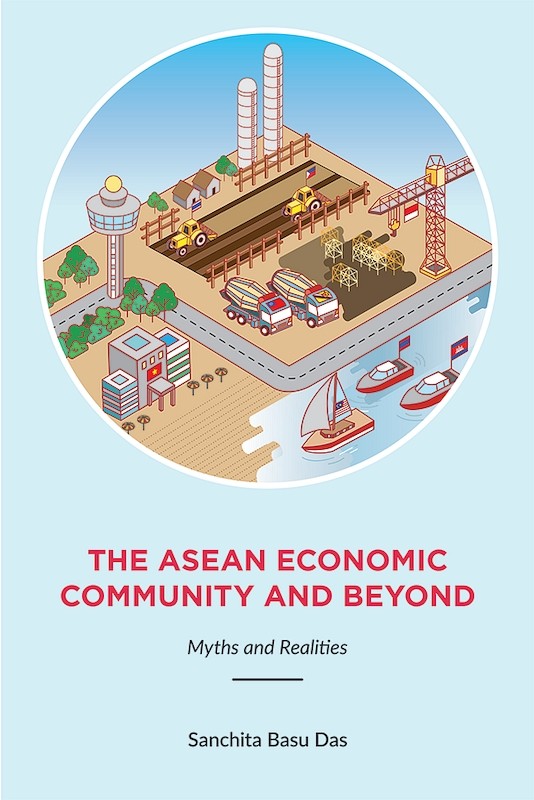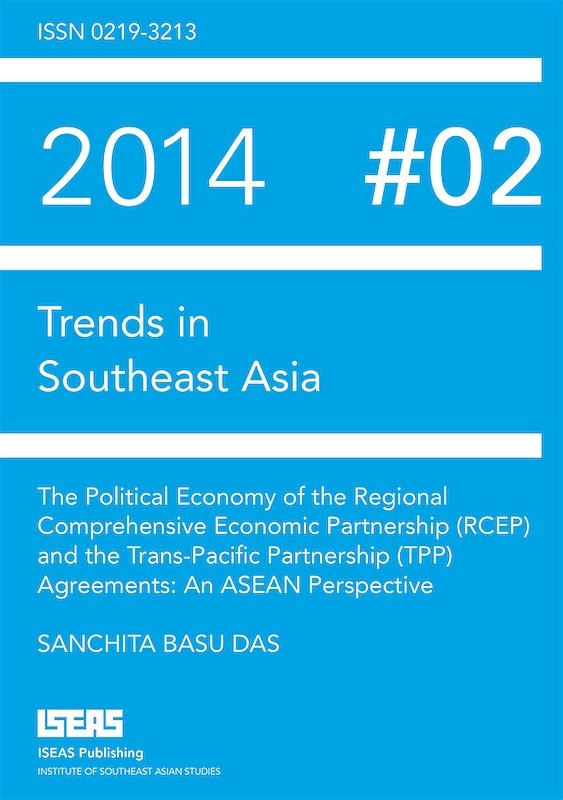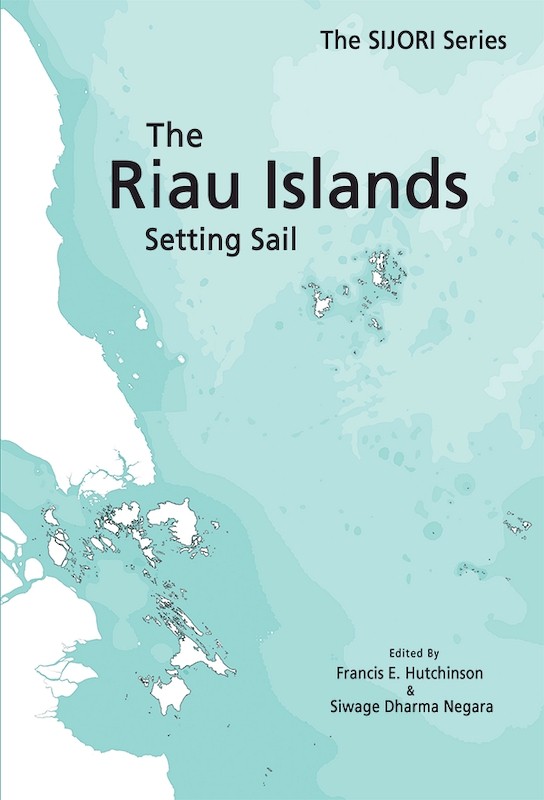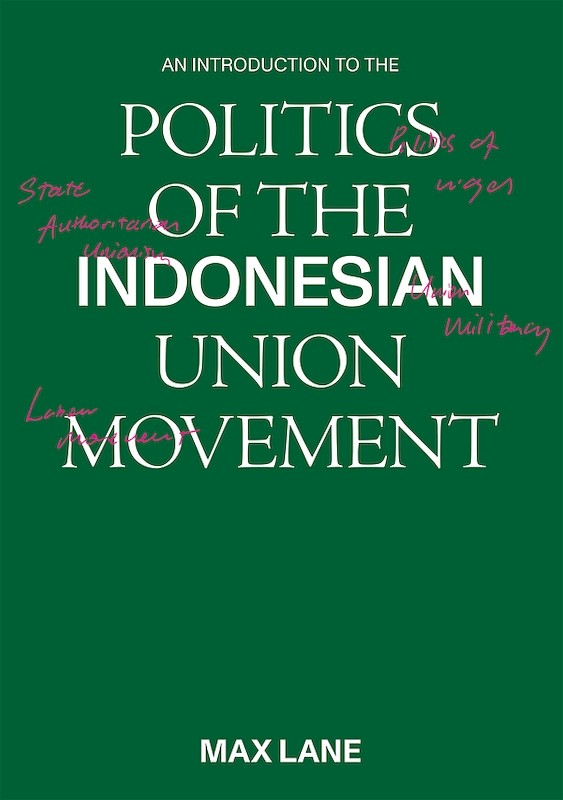The Comprehensive and Progressive Agreement for Trans-Pacific Partnership: Implications for Southeast Asia
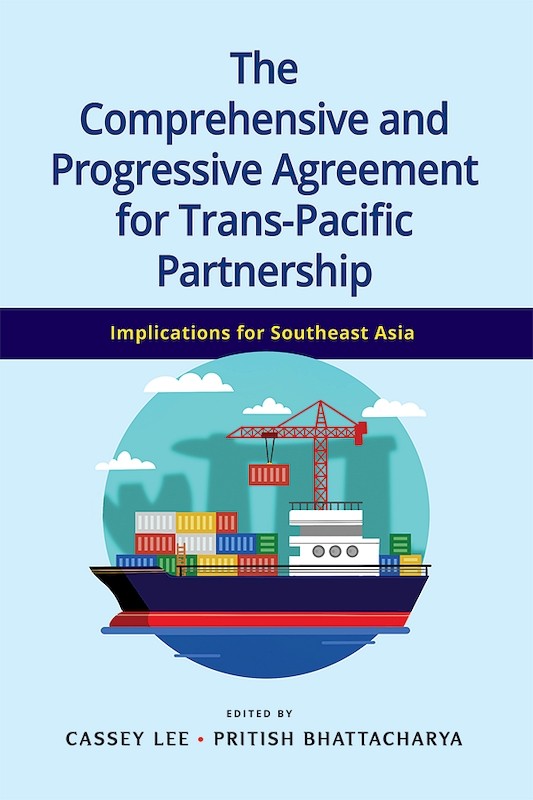
Date of publication:
2021
Publisher:
ISEAS – Yusof Ishak Institute
Number of pages:
318
Code:
PIC274
Soft Cover
ISBN: 9789814818872
Reviews
Paul, Gretton. Asian-Pacific Economic Literature, 2021.
"This book provides 11 essays by authoritative researchers on the topic of the Comprehensive and Progressive Agreement for Trans-Pacific Partnership (CPTPP) and its implications for Southeast Asia.
The essays provide a useful perspective on the evolution of the CPTPP, its implications for Southeast Asia, and some of the conundrums associated with the integration of regional priorities with the global trading system.
The essays are supported by comprehensive referencing and chapter notes. The volume has quite a detailed index that would be of particular benefit to readers searching across chapters according to points of interest. The volume also includes a comprehensive list of abbreviations that readers ... should find helpful.
The volume also includes useful analyses of the potential impacts of the CPTPP and includes a comparative analysis of the CPTPP with other economic cooperation policy scenarios. The analyses take the form of computable general equilibrium modelling, and also statistical and static analyses.
This book provides a well-considered commentary on the CPTPP. It should be a valuable reference for researchers wishing to understand the agreement and its implications. It also should be of value to policymakers seeking to develop domestic reform agendas to foster trade and investment in the region, and more broadly to provide a basis for improved living standards across the region."
About the publication
The Comprehensive and Progressive Agreement for Trans-Pacific Partnership (CPTPP) is a free trade agreement involving major countries across the Asia Pacific region. The trade pact, which entered into force on 30 December 2018, is considered by many to be the 'gold standard', given its ambitious scope and depth. This volume offers multi-dimensional insights into the CPTPP and its impact on Southeast Asia. It begins with broad analyses covering the historical, economic and geopolitical aspects of the CPTPP. Subsequent chapters focus on the nature and implications of three key path-breaking provisions in the trade agreement, namely investor-state dispute settlement, intellectual property rights and state-owned enterprises. The effect of the CPTPP on Southeast Asia in terms of regional production networks is also examined from the perspective of Japanese multinational enterprises. The potential economic impact of the agreement is analysed for member countries (Vietnam and Malaysia) as well as countries that aspire to join the CPTPP in the future (Indonesia and Thailand).
"The world trading system is in disarray: the World Trade Organization has been weakened, perhaps terminally; the world’s two economic superpowers are locked in deep, politicized disputes; the forces of populism and nationalism are everywhere complicating the return to a more liberal, rules-based order. These trends are challenging one of the building blocks of ASEAN economic development, namely these countries’ outward-looking trade and investment policies. With impeccable timing this important volume by a group of eminent authors assesses these issues with reference to the Comprehensive and Progressive Agreement for Trans-Pacific Partnership. The CPTPP excludes the three largest traders—China, the EU and the US—but it is a welcome second-best initiative that may have broader, positive ripple effects.
This is the volume to read to gain a deeper understanding of the many complex issues at play."
Hal Hill, H.W. Arndt Professor Emeritus of Southeast Asian Economies, College of Asia & the Pacific, Australian National University
Contents
-
The Comprehensive and Progressive Agreement for Trans-Pacific Partnership: Implications for Southeast Asia
[Whole Publication, ISBN: 9789814818889], by Cassey Lee, Pritish Bhattacharya, editors -
Preliminary pages
-
1. Introduction, by Cassey Lee, Pritish Bhattacharya, authors
-
2. The Economics of the CPTPP and RCEP: Asia Pacific Trade Agreements without the United States, by Peter A Petri, Michael G Plummer, Shujiro Urata, Fan Zhai, authors
-
3. The TPP and CPTPP: Truths about Power Politics , by Malcolm Cook, author
-
4. The Investment Chapter and ISDS in the CPTPP: Lessons from and for Southeast Asia, by Luke Nottage, author
-
5. Intellectual Property in the CTPP and Access to Medicines: A Thai Perspective, by Jakkrit Kuanpoth, author
-
6. New Rules for State-Owned Enterprises in the CPTPP, by Wan Khatina Nawawi, author
-
7. Impact of the CPTPP on Japanese Manufacturing Affiliates in ASEAN, by Kazunobu Hayakawa, Kohei Shiino, authors
-
8. Reassessing Malaysia’s Export Opportunities in the TPP and CPTPP, by Tham Siew Yean, Andrew Kam Jia Yi, authors
-
9. Impact of the CPTPP on Vietnam , by Phan Duc Hieu, author
-
10. Should Thailand Join the CPTPP? , by Archanun Kohpaiboon, author
-
11. Indonesia, the TPP and CPTPP: Hold Your Breath , by Kiki Verico, author
-
Index

